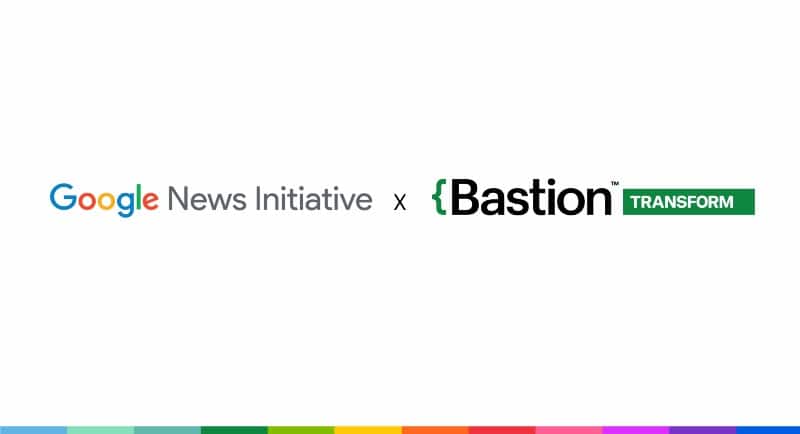Google News Initiative (GNI) and Bastion Transform are presenting the outcomes of a series of successful live newsroom experiments with three prominent news organisations – Nine Publishing, the National Indigenous Times (NIT), and BusinessDesk New Zealand.
Detailed in a new report, the initiative spanning nine months sought to foster innovation, growth, and editorial excellence within the rapidly evolving media landscape.
Having developed a unique experimental framework, each newsroom used the methodology to explore new digital territories, challenge existing journalism and production practices and test several bold hypotheses.
Gaven Morris, MD of Bastion Transform and former director of news at the ABC, says newsroom innovation is crucial to maintaining a leading editorial position and audience growth: “Innovation in newsrooms is not an option – it’s essential for journalism to keep pace with contemporary audiences as people change their news and information consumption habits. Great stories told well are never dying and experimenting with new techniques and technology mean newsrooms can stay relevant.”
The framework facilitated six content pilots addressing challenges in storytelling, resourcing, workflows, platforms, data, and technology, resulting in unexpected editorial, cultural, and business transformations.
BusinessDesk publisher and general manager, Matt Martel, said: “BusinessDesk has found the innovation framework incredibly useful, and it is now being applied in our areas of the NZME group. Our AI content, the subject of the first experiment, has grown from strength to strength and is now a key pillar of our marketing and public persona. The assistance from both Google and Bastion has been invaluable.”
NIT CEO Reece Harley added, “The National Indigenous Times was proud to participate in this Google Newsroom experiments which saw our newsroom’s productivity boosted by 20%, and a significant jump in readership of our international affairs reporting. Relationships with news partners have been deepened, and our journalists are now more keenly focused on readership metrics driving our editorial focus.”
Inspired by the success of these pilots, each newsroom leader expressed their commitment to continued experimentation, embracing a bolder approach to foster a culture of continuous learning and change.
Nine Publishing’s executive editor, Tory Maguire, commented, “For this project, I wanted to try things our newsroom has never ventured to do, across content and the way we operate. It hugely successful and next time we can be more radical now that we’ve got runs on the board.”
Uma Patel, Google News Lab ANZ Lead is encouraging other newsrooms of all sizes, markets, and mediums to take up the framework outlined in the new report and apply it to their operations: “Journalists experiment every day, whether it’s convincing a source to go on the record, digging out uncovered facts, verifying opaque information or developing a gut feeling there’s more behind the spin. This experiment framework aims to support newsrooms that want to take those same instincts and apply them to ‘test and learn’ innovation outside the news cycle, into long term value for the business.”
Outcomes from the Experiments:
Nine Publishing:
• A 425% increase in weekly digital subscribers via the "for subscribers" hard paywall.
• A 245% increase in watch time on their YouTube channel.
• 500% growth in revenue and 600% growth in subscribers on YouTube.
• Establishment of permanent newsroom initiatives due to increased engagement.
BusinessDesk New Zealand:
• Faster information output leading to a new AI focus for NZME.
• More journalist time freed up for investigative reporting.
• Collaboration with Google on a ground-breaking new AI offering.
National Indigenous Times:
• A 20% increase in content output.
• Secured two news content partners.
• A 22% increase in international story readership.
• A 179% readership growth in the Pacific & NZ.
See Also: Fishburners and Google News Initiative Bootcamp launch twelve new media publications
